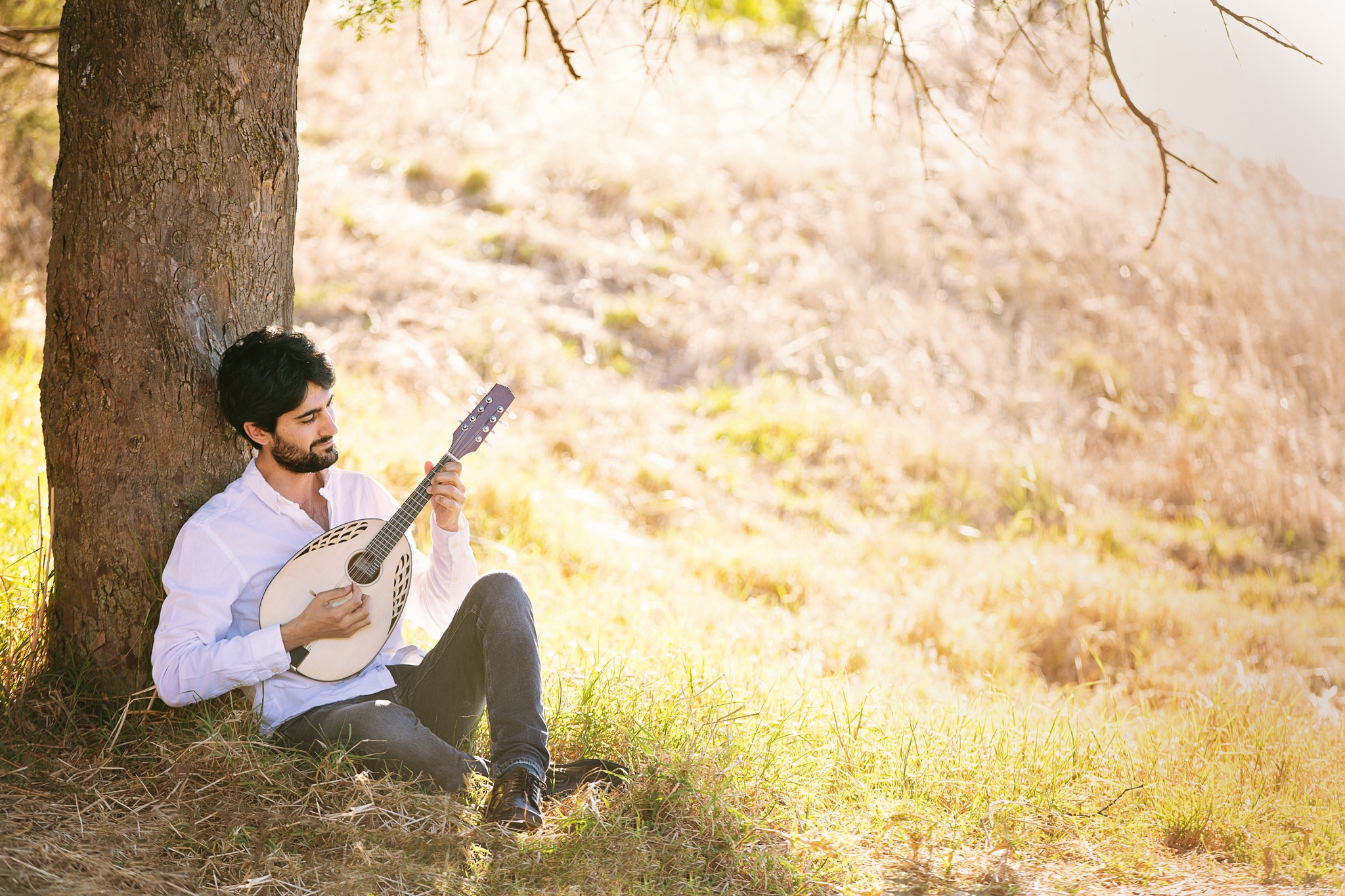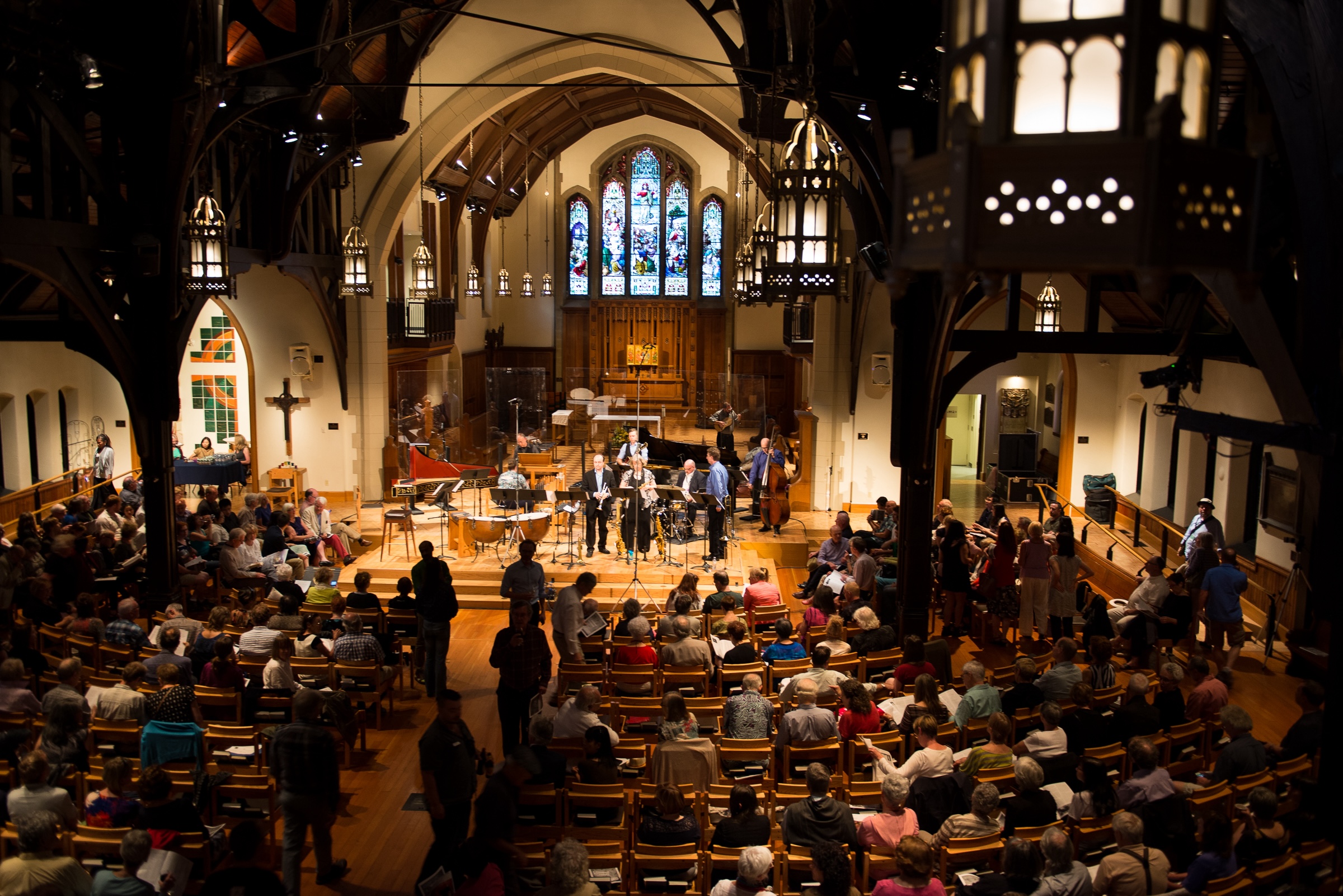Bach’s Motets: Vanish Spirits of Gloom
After attending the profound and moving Monteverdi’s Vespers 1610, we attended a presentation of Bach’s Motets. The ten soloists returned for this concert along with the Pacific Baroque Orchestra. The concert also featured the Hindustani classical improvisation of Vancouver’s own Shruti Ramani, and Israeli mandolin player, Alon Sariel, on oud. The concert was in stark contrast to the pensive and meditative Monteverdi’s Vespers. From the first note, joy rang in the air and continued to swarm the Christ Church Cathedral for an hour and a half. The pieces presented were high energy and light hearted. The soloists showed us their personalities as they engaged their whole bodies to convey this joy. The “motet” is a style of vocal composition, a sacred choral piece, sung in several parts. It has evolved greatly over the centuries and has played a significant role in the development of baroque genres like the cantata and the concerto. Six motets written by Bach have been catalogued, most of them were written for funerals. This is evident in the hymnal lyrics which move from darkness and disappointment, to hope, light, and love. The first half of the show featured four distinct motets and the second half featured Bach’s longest, most intricate and famous motet, “Jesu, meine Freude.” The soloists were brilliant just as they had been in Monteverdi’s Vespers. It was wonderful to see this playful side of the soloists! Palestinian-Lebanese soloist, Haitham Haidar performed a heartfelt Arabic song with Alon Sariel on the oud. It was a touching moment of cultural solidarity. Sariel then accompanied Shruti Ramani as she explored raagas within Bach’s motet frameworks. This cultural innovation was beautiful to witness and one wishes Haidar, Sariel, and Ramani had had longer on stage to really get into the meat of their collaboration. In fact, a collaboration between the three of them could have made for an entire fascinating evening. There was so much potential there for exploring contemporary expressions of Bach’s blueprints. There will no doubt always be purists who will prefer classics not be meddled with, but perhaps both can be true- to show audiences untouched originals, and within the same show, illustrate the influences of classical work in the present moment. After all, no art exists in a vacuum.
Director, Alexander Weimann introduced each piece with a few lines which we found to be very helpful in contextualizing the works. The musicians were wonderful and the church organ added a dramatic touch. We enjoyed the evening immensely and recommend Bach’s motets for beginners to Early Music with our whole hearts.

Bach & Mandolin with Alon Sariel
Alon Sariel is a master of his instrument. He has performed over a thousand times in more than 35 countries. He plays the lute, Baroque guitar, oud and other plucked instruments, in addition to the mandolin. Sariel took a seat on the Vancouver Playhouse stage among members of the Pacific Baroque Orchestra: seven violinists, two viola players, two cellists and one musician on the violone. Alexander Weimann directed the concert on the harpsichord. As soon as Sariel started playing we understood that he was destined to play the mandolin. He became one with the mandolin, using nods of his head, the pointing of his chin and the swaying of his neck to emphasize the sounds emanating from the strings under his fingers. He made playing the mandolin look like fun, he made it look easy! Sariel opened with an Italian Concerto by Bach. It was energetic and joyful. We were transported to the Italian countryside immediately. The excellent Chloe Meyers (concert master), Natalie Mackie, and Christine Wilkinson Beckman took centre stage for Vivaldi’s Concerto for Two Violins in A minor. It was a treat to watch these three experienced and talented musicians feed off of each other and bring to life Vivaldi’s dramatic and passionate work. The rest of the orchestra joined the three violonists for Durante’s Concerto IV in E minor and took things to another level of joy and levity. There was never a dull moment in this show. Sariel returned to the stage to perform Neapolitan composer, Barbella’s mandolin concerto in D major. He won the crowd over and had everyone in the palm of his hands with every exalted note. After the interval, Sariel continued his winning streak with pieces by Paisiello, Bach, and a contemporary tribute to Bach by Israeli composer, Amit Weiner. Sariel improvised on this last piece with charm as he played the mandolin in a contemporary style and invoked the playing of an electric guitar, to much giggling and applause from the audience. For the encore, Sariel mentioned the desire to step away from the Neapolitan tradition and played a mandolin piece by a Spanish composer. This last piece was absolutely breathtaking as the change in genre almost made the mandolin sound like a different musical instrument altogether.
The Early Music Festival in Vancouver was a smashing success. We enjoyed being immersed in the world of Bach Untamed. We learned a lot about Early Music and are now already looking forward to what the festival will bring us next year!

